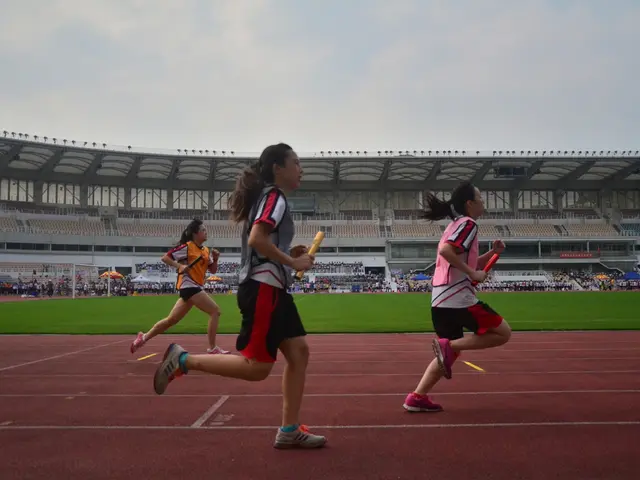Empower Your Child to Gain Independence Post-Lockdowns
Lockdowns, online learning, and isolation have significantly limited children's physical freedom and their ability to perform a myriad of activities outside the home independently. Schools are closed, sports events and birthday parties are cancelled – the list goes on. Achieving independence is even more challenging when children have never been separated from their parents or caregivers.
Additionally, many exhausted and anxious parents – who understand they should encourage their children to tie their own shoes, make their own lunch, wash their own clothes, or go to the grocery store – face difficulties in finding the time and investment for instruction. In the midst of survival, long-term benefits often take a back seat.
However, as the new school year approaches, families may have more opportunities and emotional bandwidth to help children become more independent.
Karen VanAusdal, the head practice leader at the Academic, Social and Emotional Learning Collaborative in Chicago, stresses that independent decision-making and overcoming challenges are crucial components of maturation. It may seem far removed from the independence required in adulthood for children to learn to put away their dishes or hold their plate at the buffet, but it forms a connection.
Children learn to trust their instincts and process their things – literally and figuratively speaking. They also learn that independence enables them to become part of a community, family, or group. When children help with putting away the dishes, parents have less to do. By eating at the buffet, they learn a new skill, allowing parents to send them for a fruit salad or a cup of coffee. Essentially, they learn to care for themselves and others. "Independence allows people to bring forth their abilities and leadership qualities to solve individual and collective problems", Van Ausdal said.
Here are some ways to encourage independence tailored to each child's needs:
Create New Relationships
According to Maurice J. Elias, a psychology professor at Rutgers University and a co-author of "Emotional Intelligence: How to Raise a Self-Disciplined, Responsible, and Socially Skilled Child", learning how to pack a backpack or measure rice may make children feel more independent, but parents should help children understand how these seemingly small tasks connect with others and contribute to their ability to interact with others in the future.
"We are not born to be independent.", Elias said. "Both biologically and socially, we depend upon others – families, schools, workplaces, communities, religions. – Connections that give our lives purpose and direction."
Help your child develop a new skill that gives them a larger role in their families and communities. For example, who purchases the groceries for meals at home? How can vacuuming or cleaning their room help parents and caregivers have a smoother morning? When your child shops alone, prepare them for communication and interaction with others, said Elias.
Embrace a Gradual Approach
Experts suggest there's no need to rush. Respect your child's emotional state and practical abilities. "Children have lost their confidence.", Elias said. "Try starting with a task at which they will succeed, rather than placing them straight into a challenging situation."
For younger children, begin with some fundamentals, such as asking them to make simple decisions. "Tell a child: 'Here are two pairs of shoes, which ones do you like to wear today?'" Smith said. Making simple decisions will help them feel more secure and take on more responsibility.
Combine Privileges with Responsibilities
By linking privileges with responsibility, children are incentivized to engage in activities that benefit them and those around them. For instance, instead of just cooking dinner, allow children to choose what the family eats.
Foster a Growth Mindset
Give children space to explore and make mistakes. Van Ausdal suggests, "Think about: 'Where are there two or three areas where I can transfer more responsibility to my children?'" There will be mistakes, but in the long run, things will move faster. It's an experience that benefits everyone involved.
Anya Kamenetz, a renowned education journalist and author of the upcoming book "The Stolen Year: How the Covid-19 Pandemic Changed Children's Lives and Where We Go Now", echoes the importance of fostering independence by encouraging children to engage in activities they enjoy or assisting them in achieving their goals.
Organize Yourself
Plan a new set of responsibilities for children based on their time schedules. With the new school year approaching, it's a good opportunity to start anew.
Hold a family meeting and discuss responsibilities. "Ask: 'Do we need to clean around the house?' What are your tasks?'", Kamenetz suggests. These transformations can help children better understand their roles in maintaining the household.
Chores aren't just one-off tasks; they're interconnected behaviors. When children participate in cleaning tasks or preparing food, they not only feel pride at mastering a new skill but also a sense of accomplishment in contributing to their family's well-being.
Your Child's Journey to Independence
By implementing these strategies, children will regain their independence and self-reliance post-lockdowns and isolation.
Sources:
Additional Insights:
- Research indicates that daily structure and predictability contribute to increased feelings of confidence, competence, and well-being in children.
- Emotional competence, such as recognizing emotions, managing emotions, and using emotions to guide behavior, is directly related to children's academic, social, and emotional development.
- Fostering independence in children through structured activities and experiences can teach them important life skills like persistence, problem-solving, and self-regulation.
- Parental involvement and supportive interactions contribute to positive academic, social, and emotional outcomes for children.
- Parental involvement in children's education is positively linked to academic success, social skills, and self-reliance.
, , , ,








